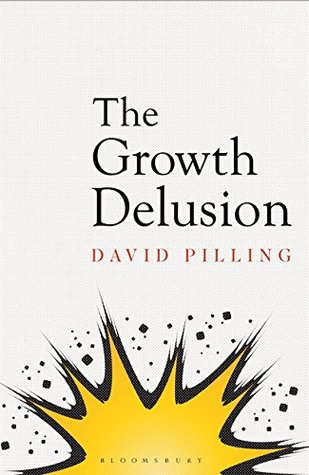LnRiLWZpZWxkcy1hbmQtdGV4dFtkYXRhLXRvb2xzZXQtYmxvY2tzLWZpZWxkcy1hbmQtdGV4dD0iYTFhZWUyOGM2Mjk3ZTE5Yjg1NGI1NGQ4MDBhMGIwY2EiXSB7IG1hcmdpbi10b3A6IDE1cHg7bWFyZ2luLWJvdHRvbTogMTZweDtwYWRkaW5nOiAxMHB4IDhweCAxMHB4IDhweDsgfSAudGItZmllbGRzLWFuZC10ZXh0W2RhdGEtdG9vbHNldC1ibG9ja3MtZmllbGRzLWFuZC10ZXh0PSIxMDM2NjU1NzNlZTE1OGZkNGJkMjI4NTEwMzE5YzU4MSJdIHsgZm9udC1zaXplOiAyMnB4O2NvbG9yOiByZ2JhKCAzNCwgMzQsIDM0LCAxICk7bWFyZ2luLXRvcDogMTBweDttYXJnaW4tYm90dG9tOiAxMHB4O3BhZGRpbmc6IDE4cHggMTBweCAycHggMTBweDtib3JkZXI6IDBweCBzb2xpZCByZ2JhKCAwLCAwLCAwLCAxICk7Ym9yZGVyLXJhZGl1czogMDsgfSAudGItZmllbGRzLWFuZC10ZXh0W2RhdGEtdG9vbHNldC1ibG9ja3MtZmllbGRzLWFuZC10ZXh0PSIxMDM2NjU1NzNlZTE1OGZkNGJkMjI4NTEwMzE5YzU4MSJdIHAgeyBmb250LXNpemU6IDIycHg7Y29sb3I6IHJnYmEoIDM0LCAzNCwgMzQsIDEgKTsgfSAudGItZmllbGRzLWFuZC10ZXh0W2RhdGEtdG9vbHNldC1ibG9ja3MtZmllbGRzLWFuZC10ZXh0PSI0NTljYTI5MmYzOTM1YzFiNDY3NDRmY2Q2NzEwZGFhNSJdIHsgbWFyZ2luLXRvcDogMTVweDttYXJnaW4tYm90dG9tOiAtMjFweDtwYWRkaW5nLXRvcDogOHB4OyB9IC50Yi1maWVsZHMtYW5kLXRleHRbZGF0YS10b29sc2V0LWJsb2Nrcy1maWVsZHMtYW5kLXRleHQ9IjYwMTgyNjU2ZjFkYzY5MjhiYjRjZDM3YmRlMGExODYzIl0geyBmb250LXNpemU6IDIycHg7Y29sb3I6IHJnYmEoIDI1NSwgMjU1LCAyNTUsIDEgKTtiYWNrZ3JvdW5kLWNvbG9yOiByZ2JhKCAyNDUsIDEzMiwgNCwgMSApO21hcmdpbi10b3A6IDEwcHg7bWFyZ2luLWJvdHRvbTogMTBweDtwYWRkaW5nOiAxOHB4IDEwcHggMnB4IDEwcHg7Ym9yZGVyOiAxcHggc29saWQgcmdiYSggMCwgMCwgMCwgMSApO2JvcmRlci1yYWRpdXM6IDNweDsgfSAudGItZmllbGRzLWFuZC10ZXh0W2RhdGEtdG9vbHNldC1ibG9ja3MtZmllbGRzLWFuZC10ZXh0PSI2MDE4MjY1NmYxZGM2OTI4YmI0Y2QzN2JkZTBhMTg2MyJdIHAgeyBmb250LXNpemU6IDIycHg7Y29sb3I6IHJnYmEoIDI1NSwgMjU1LCAyNTUsIDEgKTsgfSAudGItY29udGFpbmVyIC50Yi1jb250YWluZXItaW5uZXJ7d2lkdGg6MTAwJTttYXJnaW46MCBhdXRvfSAud3AtYmxvY2stdG9vbHNldC1ibG9ja3MtY29udGFpbmVyLnRiLWNvbnRhaW5lcltkYXRhLXRvb2xzZXQtYmxvY2tzLWNvbnRhaW5lcj0iZWQzODMyYWE2MjAxY2JlYzViMWU1YjkwMmRjMDY3ZTIiXSB7IHBhZGRpbmc6IDI1cHg7IH0gLnRiLWZpZWxkcy1hbmQtdGV4dFtkYXRhLXRvb2xzZXQtYmxvY2tzLWZpZWxkcy1hbmQtdGV4dD0iNzliMWMzOTQwMzA5ZjhmYWM2Yjc2ZGNiMjU3YmI1ZTciXSB7IGZvbnQtc2l6ZTogMTlweDsgfSAudGItZmllbGRzLWFuZC10ZXh0W2RhdGEtdG9vbHNldC1ibG9ja3MtZmllbGRzLWFuZC10ZXh0PSI3OWIxYzM5NDAzMDlmOGZhYzZiNzZkY2IyNTdiYjVlNyJdIHAgeyBmb250LXNpemU6IDE5cHg7IH0gLnRiLWltYWdle3Bvc2l0aW9uOnJlbGF0aXZlO3RyYW5zaXRpb246dHJhbnNmb3JtIDAuMjVzIGVhc2V9LndwLWJsb2NrLWltYWdlIC50Yi1pbWFnZS5hbGlnbmNlbnRlcnttYXJnaW4tbGVmdDphdXRvO21hcmdpbi1yaWdodDphdXRvfS50Yi1pbWFnZSBpbWd7bWF4LXdpZHRoOjEwMCU7aGVpZ2h0OmF1dG87d2lkdGg6YXV0bzt0cmFuc2l0aW9uOnRyYW5zZm9ybSAwLjI1cyBlYXNlfS50Yi1pbWFnZSAudGItaW1hZ2UtY2FwdGlvbi1maXQtdG8taW1hZ2V7ZGlzcGxheTp0YWJsZX0udGItaW1hZ2UgLnRiLWltYWdlLWNhcHRpb24tZml0LXRvLWltYWdlIC50Yi1pbWFnZS1jYXB0aW9ue2Rpc3BsYXk6dGFibGUtY2FwdGlvbjtjYXB0aW9uLXNpZGU6Ym90dG9tfSAudGItaW1hZ2VbZGF0YS10b29sc2V0LWJsb2Nrcy1pbWFnZT0iOTVmNGQ2OWQyNjYzYjYyMGIxNDE2MWE1ZjQ3YTQxZWIiXSB7IG1heC13aWR0aDogMTAwJTsgfSAudGItZmllbGRzLWFuZC10ZXh0W2RhdGEtdG9vbHNldC1ibG9ja3MtZmllbGRzLWFuZC10ZXh0PSIxYzE4ZWI2NzVlYzAzMDg1ODkxZGIzNDJhNzI4Yzg1NiJdIHsgZm9udC1zaXplOiAxOHB4OyB9IC50Yi1maWVsZHMtYW5kLXRleHRbZGF0YS10b29sc2V0LWJsb2Nrcy1maWVsZHMtYW5kLXRleHQ9IjFjMThlYjY3NWVjMDMwODU4OTFkYjM0MmE3MjhjODU2Il0gcCB7IGZvbnQtc2l6ZTogMThweDsgfSBAbWVkaWEgb25seSBzY3JlZW4gYW5kIChtYXgtd2lkdGg6IDc4MXB4KSB7IC50Yi1jb250YWluZXIgLnRiLWNvbnRhaW5lci1pbm5lcnt3aWR0aDoxMDAlO21hcmdpbjowIGF1dG99LnRiLWltYWdle3Bvc2l0aW9uOnJlbGF0aXZlO3RyYW5zaXRpb246dHJhbnNmb3JtIDAuMjVzIGVhc2V9LndwLWJsb2NrLWltYWdlIC50Yi1pbWFnZS5hbGlnbmNlbnRlcnttYXJnaW4tbGVmdDphdXRvO21hcmdpbi1yaWdodDphdXRvfS50Yi1pbWFnZSBpbWd7bWF4LXdpZHRoOjEwMCU7aGVpZ2h0OmF1dG87d2lkdGg6YXV0bzt0cmFuc2l0aW9uOnRyYW5zZm9ybSAwLjI1cyBlYXNlfS50Yi1pbWFnZSAudGItaW1hZ2UtY2FwdGlvbi1maXQtdG8taW1hZ2V7ZGlzcGxheTp0YWJsZX0udGItaW1hZ2UgLnRiLWltYWdlLWNhcHRpb24tZml0LXRvLWltYWdlIC50Yi1pbWFnZS1jYXB0aW9ue2Rpc3BsYXk6dGFibGUtY2FwdGlvbjtjYXB0aW9uLXNpZGU6Ym90dG9tfSB9IEBtZWRpYSBvbmx5IHNjcmVlbiBhbmQgKG1heC13aWR0aDogNTk5cHgpIHsgLnRiLWNvbnRhaW5lciAudGItY29udGFpbmVyLWlubmVye3dpZHRoOjEwMCU7bWFyZ2luOjAgYXV0b30udGItaW1hZ2V7cG9zaXRpb246cmVsYXRpdmU7dHJhbnNpdGlvbjp0cmFuc2Zvcm0gMC4yNXMgZWFzZX0ud3AtYmxvY2staW1hZ2UgLnRiLWltYWdlLmFsaWduY2VudGVye21hcmdpbi1sZWZ0OmF1dG87bWFyZ2luLXJpZ2h0OmF1dG99LnRiLWltYWdlIGltZ3ttYXgtd2lkdGg6MTAwJTtoZWlnaHQ6YXV0bzt3aWR0aDphdXRvO3RyYW5zaXRpb246dHJhbnNmb3JtIDAuMjVzIGVhc2V9LnRiLWltYWdlIC50Yi1pbWFnZS1jYXB0aW9uLWZpdC10by1pbWFnZXtkaXNwbGF5OnRhYmxlfS50Yi1pbWFnZSAudGItaW1hZ2UtY2FwdGlvbi1maXQtdG8taW1hZ2UgLnRiLWltYWdlLWNhcHRpb257ZGlzcGxheTp0YWJsZS1jYXB0aW9uO2NhcHRpb24tc2lkZTpib3R0b219IH0g
Looking for 2022/2023 nonfiction books worth reading? Want to know when The Growth Delusion releases? See below for more on The Growth Delusion release date and autor below.
The Growth Delusion Release Date: 18th January 2018
A revelatory and entertaining book about the pitfalls of how we measure our economy and how to correct them, by an award-winning editor of The Financial Times.
According to GDP, the economy is in a golden era: economic growth has risen steadily over the past 70 years and shows no sign of stopping. But if this is the case, why are we living in such fractured times, with global populism on the rise and wealth inequality as stark as ever?
In this book, author and prize-winning journalist David Pilling demystifies gross domestic product, a tool that measures the goods and services a country produces in a set period. Revered by economists, GDP is considered evidence of a country's success and well-being. Yet GDP is actually, at best, a numbers game, unequipped to deal with the nuances of the digital economy and developing nations. It also lacks moral judgment: such is the drive for growth that heroin consumption is valued more than volunteer work. By fixating on GDP, experts are ignoring alternative models that better reflect reality and ushering in policies that could even harm us.
In characteristically clear and lively prose, Pilling draws on a quarter century of reporting to argue that our steadfast loyalty to GDP is informing misguided policies - and contributing to a growing mistrust of experts that is shaking the foundations of our democracy. We live in a society in which a priesthood of economists, wielding impenetrable mathematical formulas, sets the framework for public debate. Ultimately, it is economists who set the agenda for how much we can spend on our schools, highways, and defence; who decide how much unemployment is acceptable and whether it is right to print money or bail out profligate banks. The backlash we are currently witnessing suggests that people are turning against the economists and their faulty representation of our lives.
Despite decades of steady economic growth, many citizens feel more pessimistic than ever and are voting for candidates who voice undisguised contempt for the technocratic elite. For too long economics has relied on a language which fails to resonate with people's lived experience, and we are now living with the consequences.

